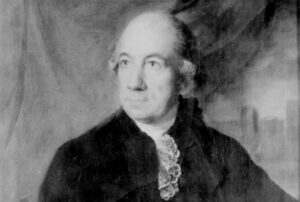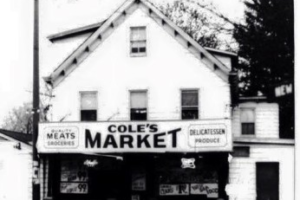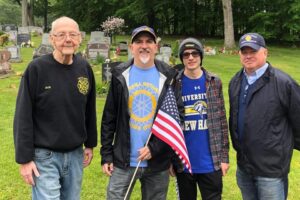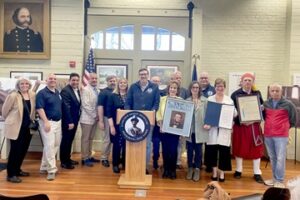
The Hudson Valley and especially the river itself played a pivotal role in the Revolutionary War. The British fought to control the river so they could divide the colonies and freely navigate from New York City to Albany and points north. But Gen. George Washington and other colonial leaders tried to foil their divide and conquer strategy, by fortifying the river with a series of forts, including West Point.
“The construction of the American fortress at West Point (at a very mountainous, narrow, and winding section of the river) was part of the American plan to restrict British access up and down the river, says Henry John Steiner, village historian of Sleepy Hollow. Washington called it “the most important post in America,” and if it was lost the result would be “the most ruinous consequences.”
That explains why West Point was the focus of the most infamous treasonous act in American history – Benedict Arnold’s plot to hand the Point over to the British – in return for money and a commission in the British army. Ever since, the name Benedict Arnold has been synonymous with the word “traitor.” And that infamous plot was broken up right in our backyard, at the junction of Bedford Road and Albany Post Road near Sleepy Hollow and Tarrytown.

When Arnold started meeting with British General Henry Clinton in New York City in 1779, he was extremely disgruntled due to severe injuries he suffered at the Battle of Saratoga, accusations of financial malfeasance lodged against him, and the fact that he got passed over for a promotion to major general. Arnold and Clinton discussed how Arnold could betray the Continental Army, with the grand prize being none other than West Point.
Arnold then lobbied to become commander of the Point – and when he got his wish in 1780, his treasonous plot was off to the races. Arnold met his British conduit, Major John André, through Arnold’s wife Peggy Shippen – the daughter of a wealthy Philadelphia businessman. Steiner says, “Shippen had previously become acquainted with Major Andre during the British occupation of Philadelphia (Arnold was commandant of the city). It appears that this relationship may have led to the secret correspondence that developed between Arnold and André.”
Arnold started corresponding with André to put the plan in motion, and he even scattered his troops to weaken West Point’s defenses. The two men met in Haverstraw, and Steiner describes what happened next: “André crossed the Hudson and rode south on a borrowed horse, traveling through Westchester County on the east side of the Hudson River. In his boot were highly confidential plans to the military defenses of the American fortress at West Point.”
André was taking the plans down to British headquarters in the city, dressed as a civilian to disguise himself, and carrying a pass given to him by Arnold that was supposed to allow him to pass through American lines. But three members of the New York militia became suspicious after stopping and interrogating him. “The capture took place about 100 yards to the east of the John Paulding statue at today’s Patriots’ Park,” says Steiner. He adds, “Had John André not been stopped that day, it is likely that America’s bid for independence would have failed.”

The British major was then brought back across the river, and Steiner explains the rest: “During his trial, Andre was held at a tavern in Tappan that is still standing, the Old ‘76 House.” Washington’s headquarters was located a short distance away, as was the church where Andre was tried by a board of high-ranking American officers. Upon being found guilty of spying, Andre was sentenced to hang and was then brought a short distance to Gallows Hill, where he was executed and then buried near the gallows. His remains were returned to Britain during the 19th century.”
Benedict Arnold got away, and the British made him a brigadier general. He even fought against the Continental Army in Virginia and New London, Conn. Arnold died in London in 1801 at the age of 60 – but his legacy as the most famous traitor in American history lives on.






